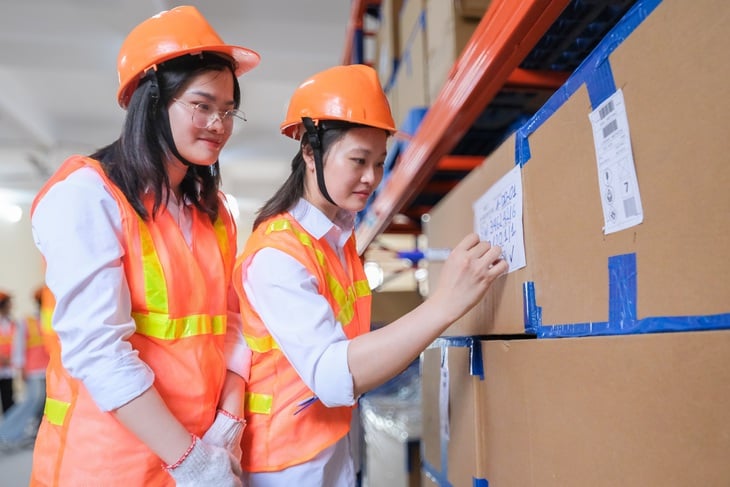
Students studying logistics in Vietnam - Photo: HA QUAN
At the International Conference on Sustainable Development in Economics , Business and Law 2025 (SEBL 2025) recently organized by the University of Economics and Law (Ho Chi Minh City National University), many experts said that economic and management professions, including logistics and supply chains, are being forced to change rapidly due to the impact of AI.
The trend of training 'human - AI collaboration'
Professor Angappa Gunasekaran, Penn State Harrisburg School of Business (USA), said that fluctuations in the global market are forcing businesses to build a logistics and supply chain system based on high levels of forecasting, optimization and automation.
In this standard system, AI will be the core support tool for faster and more accurate decision making.
According to the professor, GenAI is changing the way businesses design supply chain networks, optimize operations, manage risks, and even develop new products.
AI models can process huge amounts of data, simulate multiple scenarios, automatically detect bottlenecks, and provide optimal solutions for inventory, transportation, or production planning.
Big names like Amazon, Walmart and DHL have all used GenAI to optimize delivery routes, forecast demand and track supply chains in real time, creating a clear competitive advantage.
Therefore, Professor Gunasekaran believes that for the supply chain to operate according to new standards, the workforce must possess "dual" skills.
That means understanding logistics and traditional operations, as well as being proficient in data analysis, optimization models, and digital technologies such as IoT, AI, and cloud computing.
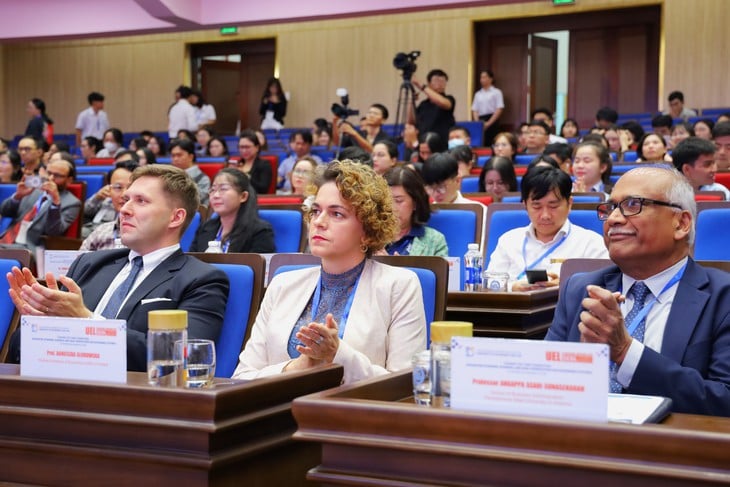
Professor Gunasekaran (right cover) at the conference - Photo: Organizing Committee
Professor Gunasekaran particularly emphasized two factors: human resource training and change management. Enterprises can only exploit the power of GenAI when their teams are well-trained, know how to interact with models, understand data and make decisions in a highly automated environment.
For universities, he predicts that the logistics and supply chain industry will face strong pressures for change.
The curriculum is expected to evolve towards “human-AI collaboration”, with the ability to personalize services, advanced risk simulation, deep integration with IoT and blockchain.
Therefore, the education system, especially logistics, operations management and data analysis training programs, must quickly update output standards and add content on GenAI, industry 4.0 and digital skills.
“The ability to work with AI will become a requirement, not an option,” the professor said.
The rate of women-owned businesses is still low.
Also at the workshop, Associate Professor Agnieszka Głodowska from Krakow University of Economics (Poland) raised the issue that according to IMF estimates, the world economy could lose up to 12,000 billion USD each year due to the gender gap in the workforce.
In Central and Eastern Europe (CEE), for example, she said, women have high levels of education and labor participation, and even start-up rates of 72% compared to men, higher than in Western and Northern Europe. But the proportion of women-owned businesses remains low, and only about 9% of exporting businesses have women as leaders.
In the Visegrad study of Poland, the Czech Republic, Slovakia and Hungary, female entrepreneurs also rated factors such as self-fulfillment, flexibility and economic opportunity as the strongest motivators, while the biggest barriers came from risk aversion, lack of capital and social prejudice.
From these data, she argues that improving gender equality cannot be separated from education and training. In the Central and Eastern Europe region, it is the solid educational foundation that helps women excel in academics, skills and labor capacity.
In addition, programs such as mentoring, retraining, advanced training or building female role models will be some of the keys for women to enter decision-making positions.
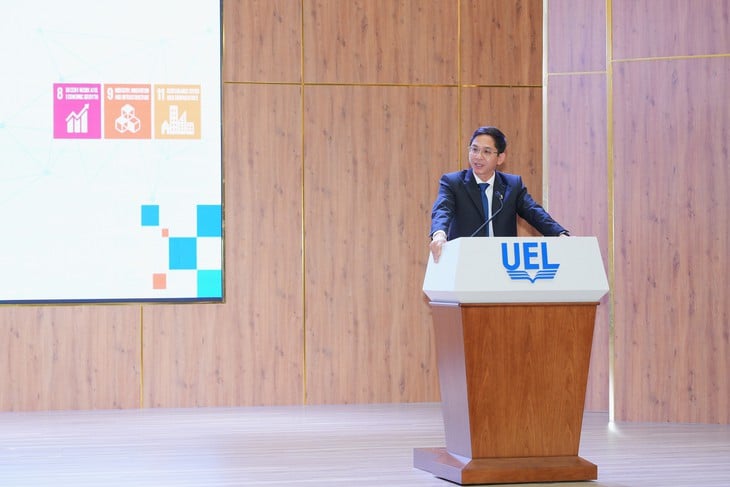
Associate Professor Dr. Hoang Cong Gia Khanh - Principal of University of Economics and Law - spoke at the conference - Photo: Organizing Committee
SEBL 2025, themed "Towards Dual Transformation: Integrating Economic, Business and Legal Perspectives for a Sustainable Future" , discussed solutions to help businesses, economies and societies adapt more effectively to global fluctuations.
The workshop was attended by many domestic and foreign experts from Canada, China, Germany, Indonesia, India, Korea, UK, USA, etc.
Source: https://tuoitre.vn/chuyen-gia-ai-gay-ap-luc-thay-doi-manh-me-dao-tao-logistics-20251124122115366.htm


![[Photo] National Assembly Chairman Tran Thanh Man receives a business delegation from the Europe-ASEAN Business Council](/_next/image?url=https%3A%2F%2Fvphoto.vietnam.vn%2Fthumb%2F1200x675%2Fvietnam%2Fresource%2FIMAGE%2F2025%2F11%2F24%2F1763989198212_ndo_br_bnd-7394-jpg.webp&w=3840&q=75)




![[Photo] Prime Minister Pham Minh Chinh attends the patriotic emulation congress of the banking sector](/_next/image?url=https%3A%2F%2Fvphoto.vietnam.vn%2Fthumb%2F1200x675%2Fvietnam%2Fresource%2FIMAGE%2F2025%2F11%2F24%2F1763981997729_tt-nhnn-jpg.webp&w=3840&q=75)
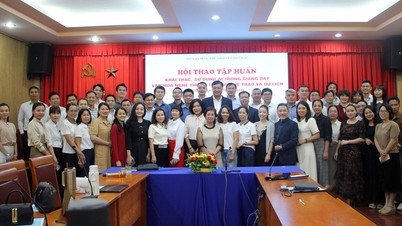



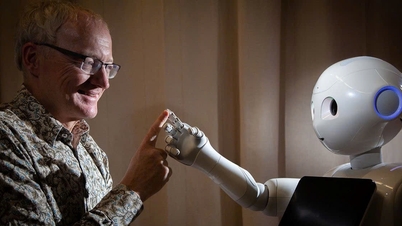

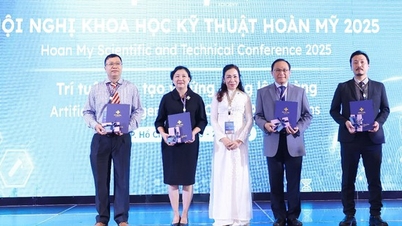

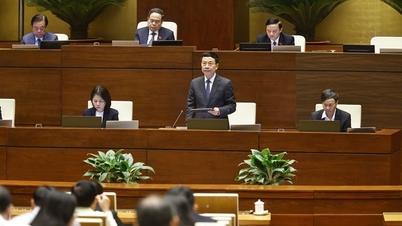



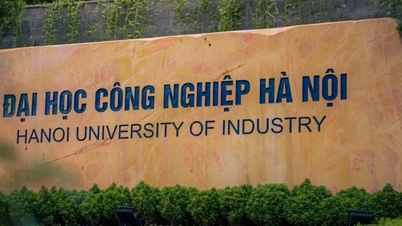






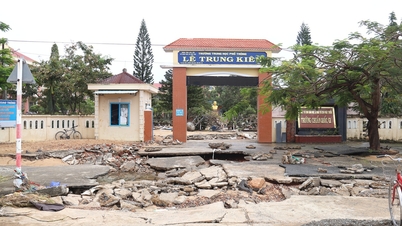








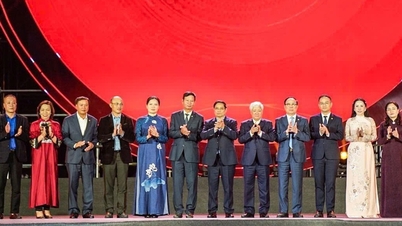
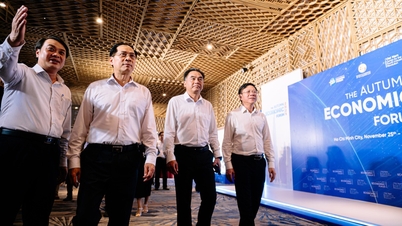



![[Photo] Next to the "mountain of trash" after the flood, Tuy Hoa residents strive to rebuild their lives](/_next/image?url=https%3A%2F%2Fvphoto.vietnam.vn%2Fthumb%2F1200x675%2Fvietnam%2Fresource%2FIMAGE%2F2025%2F11%2F24%2F1763951389752_image-1-jpg.webp&w=3840&q=75)



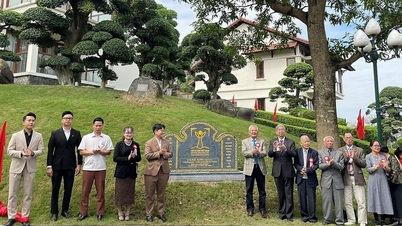


















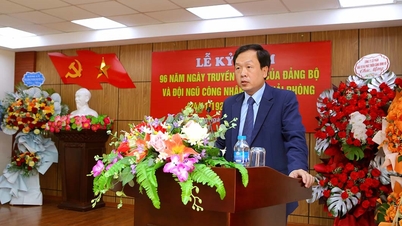


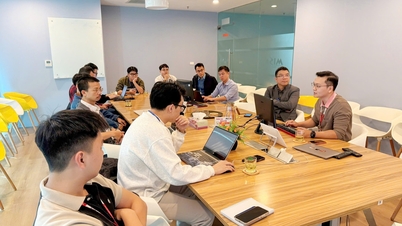


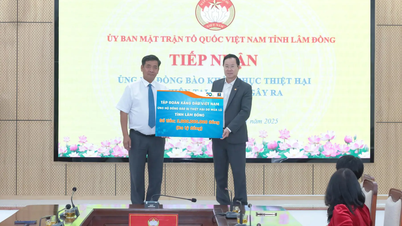






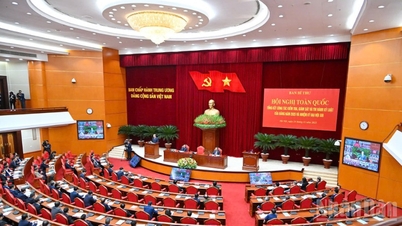





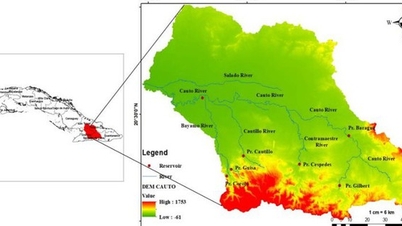

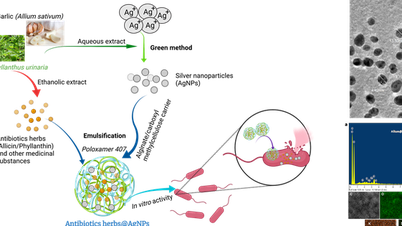



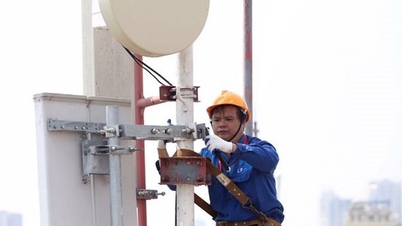























Comment (0)